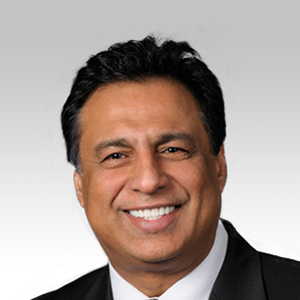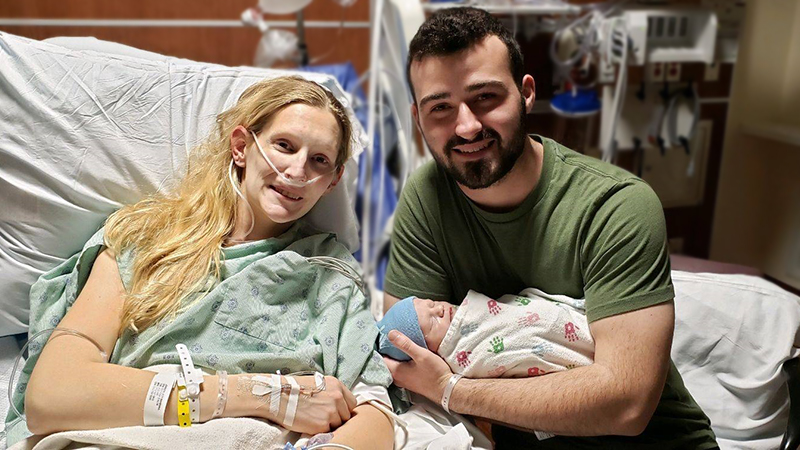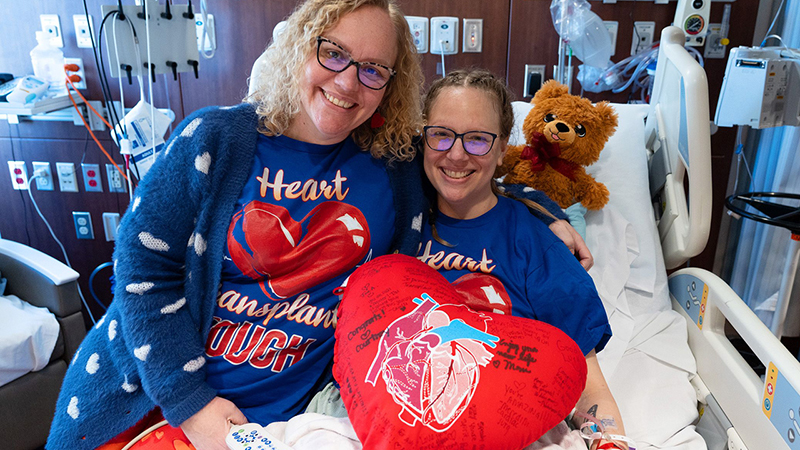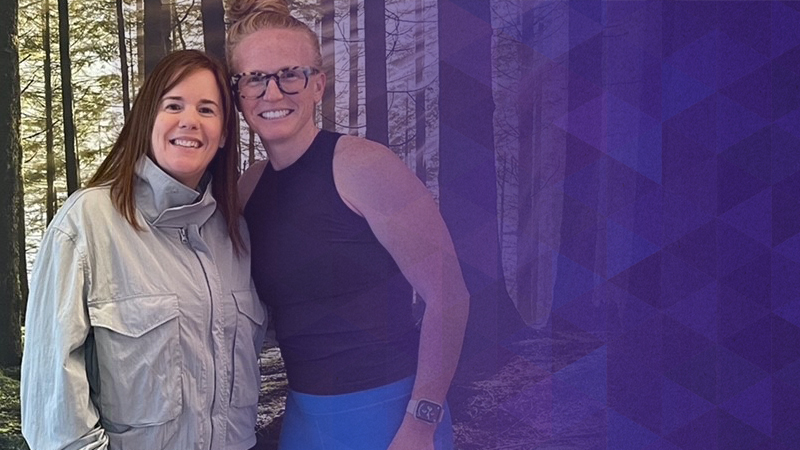Bringing Stroke Care to Patients Closer to Where They Live
Delivering Lifesaving Care Quickly When Every Second Counts
Published May 2024
When former nurse Karen Blinstrup, a Roselle, Illinois, resident, took her granddaughter to see the Northwestern Medicine Mobile Stroke Unit at a local touch-a-truck event, she never imagined that one day she would receive lifesaving treatment in that same vehicle.
The Mobile Stroke Unit — the only one of its kind in Illinois — brings the emergency department to the patient. The unit is equipped with:
The earlier you treat the patient the better their outcome.— Harish N. Shownkeen, MD
- A state-of-the-art computerized tomography (CT) scanner
- Telemedicine connections to a neuroradiologist and neurologist at Northwestern Medicine Central DuPage Hospital to help determine the course of treatment
- Point-of-care lab equipment for blood testing
- Stroke-specific medications
The Mobile Stroke Unit team includes a critical care nurse, a CT technician, an emergency medical technician (EMT) driver and a critical care paramedic.
“Our Mobile Stroke Unit is delivering lifesaving care over 30 minutes faster than traditional transport via ambulance,” says Harish N. Shownkeen, MD, the medical director of the Northwestern Medicine Stroke and Neurointerventional Surgery Programs at Central DuPage Hospital. “The earlier you treat the patient, the better their outcome. Patients who get treated right away often go home from the hospital instead of to a nursing home or rehabilitation.”
Preventing Long-Lasting Damage
For Karen, access to the Mobile Stroke Unit likely saved her from serious long-term effects from a stroke. One day when her husband came home for lunch, he noticed she seemed a bit off, but Karen assured him it was nothing. When he returned a few hours later, she could not move the left side of her body, and although she thought she was making sense, her speech was garbled.
A call to 911 dispatched both the Roselle Fire Department and the Mobile Stroke Unit. The clock was ticking. For strokes caused by a blockage of blood flow to the brain, clot-busting medications must be injected within a 4.5-hour window from the onset of symptoms. However, medications cannot be administered until a CT, or other imaging, determines if the stroke is caused by a bleed (hemorrhagic) or a blockage (ischemic).
While parked in Karen’s driveway, the Mobile Stroke Unit team performed a CT scan and communicated with a stroke-trained neurologist via telemedicine. With just minutes to spare, she was given a powerful blood-thinning medication.
“Right after receiving the medication, I remember raising my left arm,” says Karen. “I said ‘Hello’ to everyone in the Mobile Stroke Unit.”
She was rushed to Central DuPage Hospital where the team could bypass the Emergency Department and take her directly to an interventional lab, where specialists removed a 4-centimeter clot from a cerebral artery. After 10 days of care, Karen was able to walk out of the hospital with no assistance and didn’t need a post-acute care rehabilitation facility or outpatient physical therapy.
“My recovery was excellent. When my kids arrived, I could talk with them and had good movement,” Karen says. “My quality of life is what it is today because of Northwestern Medicine. I could be in a totally different circumstance if not for the Mobile Stroke Unit.”
“It is extremely rewarding to see our patients return to an active and full life,” says Keely Buffo, RN, CCRN, a critical care nurse who is part of the Mobile Stroke Unit Program. “That can only happen if patients are treated quickly. Please call 911 at the first sign of stroke.”
Helping Patients Closer to Where They Live
The Mobile Stroke Unit can be directly dispatched by 911 to patients within the Central DuPage Hospital Emergency Medical Services area, which includes Carol Stream, Bartlett, Glen Ellyn, Glenside, Hanover Park, Roselle, Warrenville, West Chicago, Wheaton and Winfield.
For areas in the secondary region, which includes St. Charles, Geneva, Batavia, Elburn, Big Rock, Sugar Grove, South Elgin, North Aurora, Fermilab and Fox River/Countryside, fire protection districts and ambulance services can request the Mobile Stroke Unit for patients who meet stroke criteria.
Since Northwestern Medicine introduced the Mobile Stroke Unit to the community, more than 2,500 patients have received care from its team.








